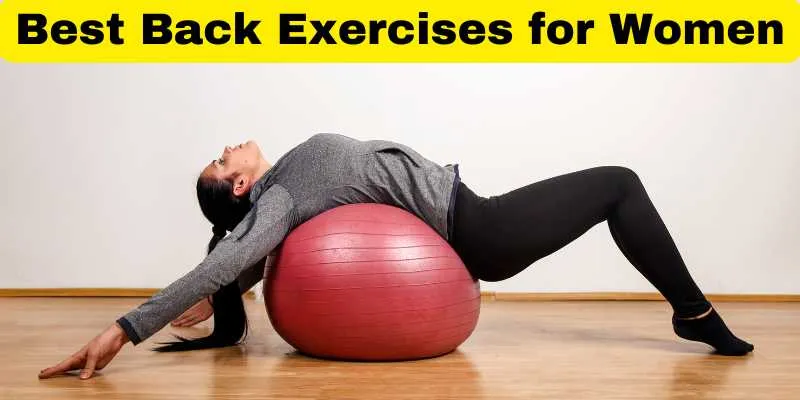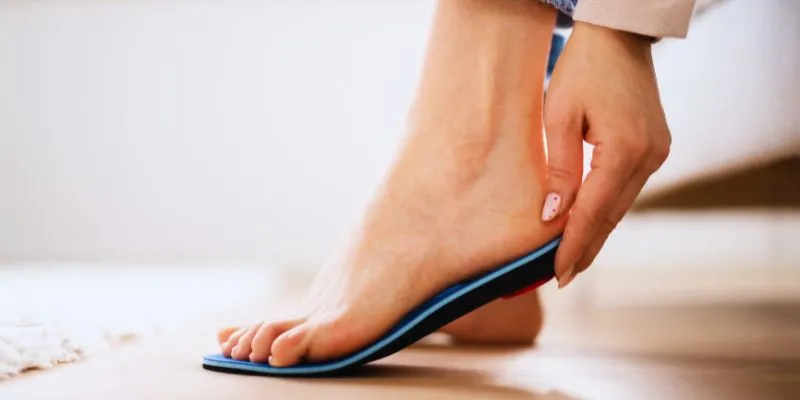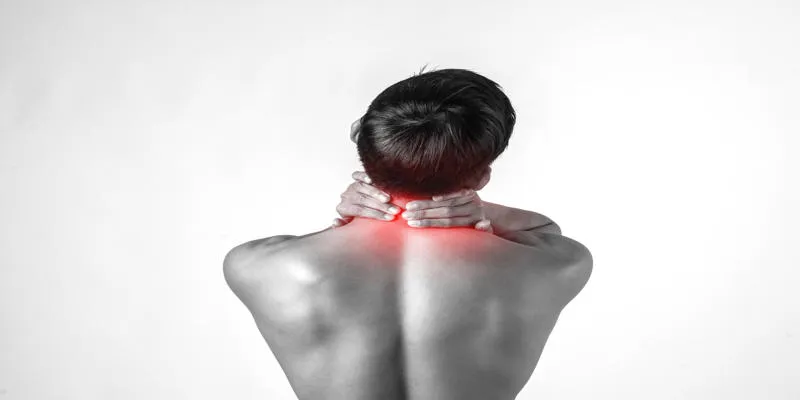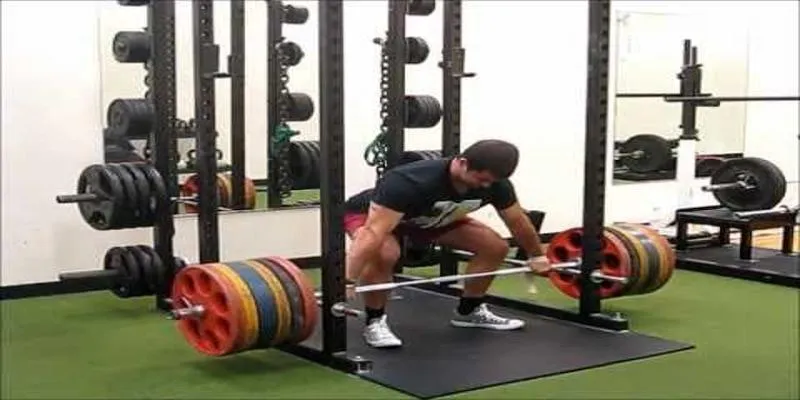Health Benefits of the Happy Baby Pose (Ananda Balasana)
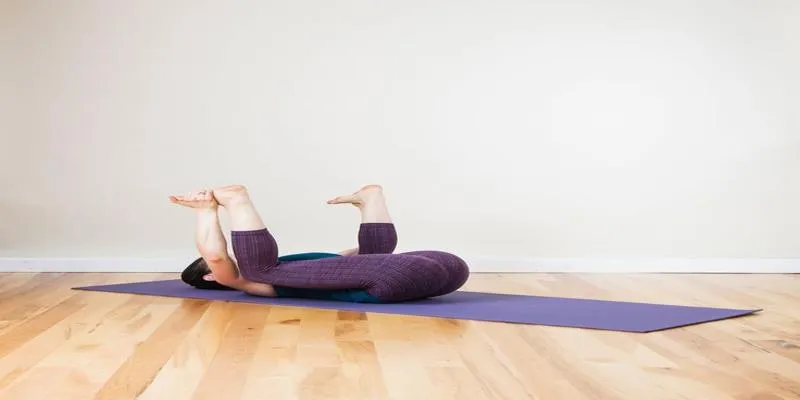 Happy Baby
Pose, or Ananda Balasana in Sanskrit, is a gentle and restorative yoga pose
that mimics the position of a joyful baby. Appropriately named, “ananda” means
bliss or happiness, while “bala” means child. In this asana, you lie on your
back, holding your feet, and gently rock from side to side like a content
baby.
Happy Baby
Pose, or Ananda Balasana in Sanskrit, is a gentle and restorative yoga pose
that mimics the position of a joyful baby. Appropriately named, “ananda” means
bliss or happiness, while “bala” means child. In this asana, you lie on your
back, holding your feet, and gently rock from side to side like a content
baby.
Proper Execution
To practice the Happy Baby Pose:
- Lie on your back on a yoga mat.
- Bend your knees and draw them in toward your chest.
- Reach across and take hold of the outer edges of your feet with your hands.
- Separate your knees wide apart, drawing them toward your armpits.
- Flex your feet, drawing your heels toward the ceiling while pulling your hands down.
- Press the lower back into the mat.
Benefits and Applications
This pose provides numerous physical and mental benefits. It is excellent for loosening up inner thighs, groin, and hips while relieving lower back tensions. The Happy Baby Pose can enhance flexibility, reduce stress, and promote relaxation. It’s often used as a cool-down stretch after more intense yoga practices or workouts.
Modifications and Precautions
This pose is generally safe for most practitioners, but those with knee injuries or who are pregnant should consult a healthcare provider beforehand. If you have difficulty reaching your feet, use a yoga strap looped around each foot. Remember, the key is to find a comfortable position that allows you to breathe deeply and relax into the stretch.
The Remarkable Health Benefits of the Happy Baby Pose
The Happy Baby Pose, or Ananda Balasana, is more than a cute yoga pose. This gentle yet powerful asana offers several health benefits that can enhance your physical and mental well-being. Let’s explore some remarkable advantages of incorporating this pose into your yoga routine.
| Benefit | Description |
|---|---|
| Improved Flexibility | Increases flexibility in the hips, lower back, and hamstrings, improving mobility and reducing injury risk. |
| Stress Relief | Soothes the mind and body, releasing tension and promoting relaxation. |
| Enhanced Digestion | Stimulates digestion and alleviates constipation through gentle abdominal massage. |
| Posture Improvement | Strengthens core muscles, helping correct posture imbalances and reduce back pain. |
Improved Flexibility and Mobility
One of the main advantages of the Happy Baby Pose is that it can help increase flexibility in the hips, lower back, and hamstrings. Gently rocking in this position from side to side effectively creates tension and loosens the tight muscles and connective tissues. Increasing flexibility also provides better mobility in daily activities and reduces the chances of injury during physical workouts.
Who Can Benefit from Practicing the Happy Baby Pose?
 The Happy Baby Pose
is a versatile asana that benefits many individuals. It is gentle and
accessible to practitioners across various age and fitness categories.
The Happy Baby Pose
is a versatile asana that benefits many individuals. It is gentle and
accessible to practitioners across various age and fitness categories.
Stress Relief for Busy Professionals
In today’s fast-paced world, stress levels among professionals are high. The Happy Baby Pose helps busy professionals release tension and relax in just a few minutes. This asana slightly stretches the lower back and hip, relieving physical manifestations of stress accumulated while sitting at a desk.
Athletes Seeking Flexibility and Recovery
Athletes and fitness enthusiasts benefit significantly from adding this pose to their routine. The Happy Baby Pose targets the hip flexors, hamstrings, and lower back, which become rigid due to intense physical activity. It helps gain flexibility, prevent injuries, and assists in recovery after workouts.
Pregnant Women and New Mothers
Expectant mothers find relief in the Happy Baby Pose, as it may alleviate lower back pain and prepare the body for childbirth. However, consulting a healthcare provider is vital before practicing yoga during pregnancy. This pose also helps new mothers recover after childbirth by gently stretching the pelvic region and inducing relaxation.
Seniors Maintaining Mobility
Flexibility and joint health become crucial as we age. The Happy Baby Pose provides a gentle method for the elderly to maintain hip flexibility, loosen tightness in the lower back, and promote general well-being. Its low-impact nature is suitable for those with limited mobility or joint issues.
Individuals with Sedentary Lifestyles
This pose is beneficial for individuals who sit for long hours, either in the office or elsewhere. Prolonged sitting compresses the hips, stiffens the spine, and affects posture. The Happy Baby Pose counterbalances these negative effects.
Incorporating the Happy Baby Pose into Your Yoga Routine
Starting Your Practice
Start incorporating the Happy Baby Pose into your cool-down routine. Transition to this restorative pose after more active asanas, allowing your body to let go and relax. Hold for 30 seconds to 1 minute, gradually increasing as you become more comfortable.
Enhancing Your Experience
Focus on your breath to maximize the benefits of the Happy Baby Pose. Prolong your time in the pose with deep, slow breathing, allowing your body to sink deeper into the stretch with each exhalation. This mindful breathing helps reduce stress and fosters a feeling of calmness.
Variations for Different Skill Levels
Try the half-happy baby pose for beginners, holding one leg at a time. This version targets each side individually and may be easier on the body. As you progress, gently rock side to side in the full expression to massage your lower back and provide a greater stretch to your hips.
Incorporating Props
Use props to deepen your practice and make the pose more accessible. If you can’t reach your feet, loop a yoga strap around them. Alternatively, place a folded blanket under your head and neck for extra support and comfort while in the pose.
Frequency and Timing
Practice the Happy Baby Pose at least 3-4 times a week to reap the benefits. Generally used for its cooling-down effect, you can also perform this pose every morning to ease your body into a gentle stretch. Listen to your body and adjust the frequency and duration according to how your body feels.
Conclusion
Incorporating the Happy Baby Pose into your yoga practice can significantly benefit your physical and mental health. Embrace its childlike wonders and watch how it brings joy and relaxation to your yoga practice and daily life.

